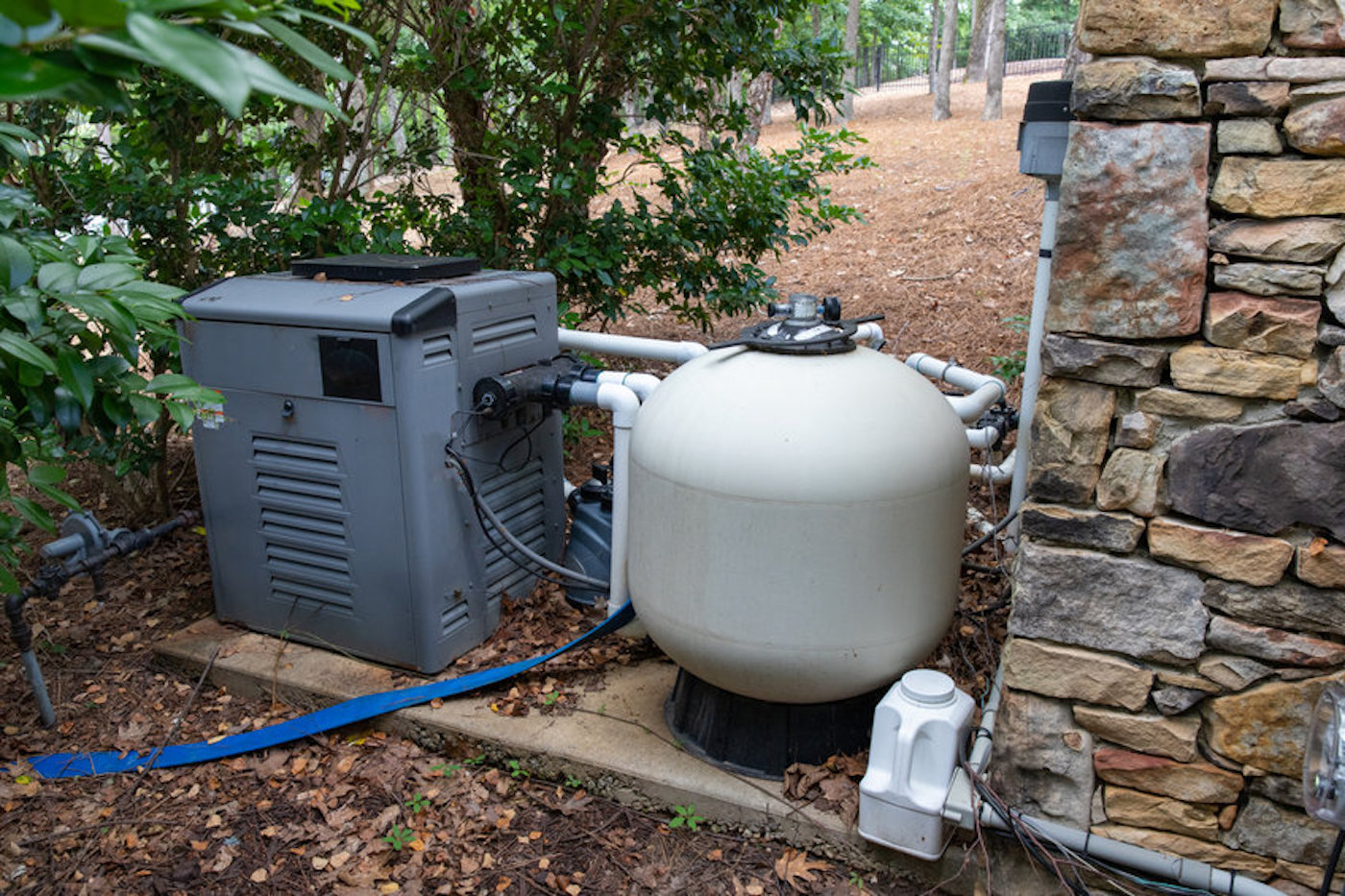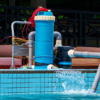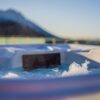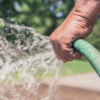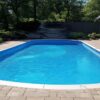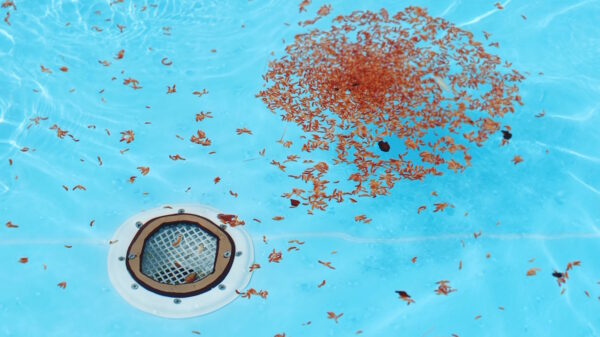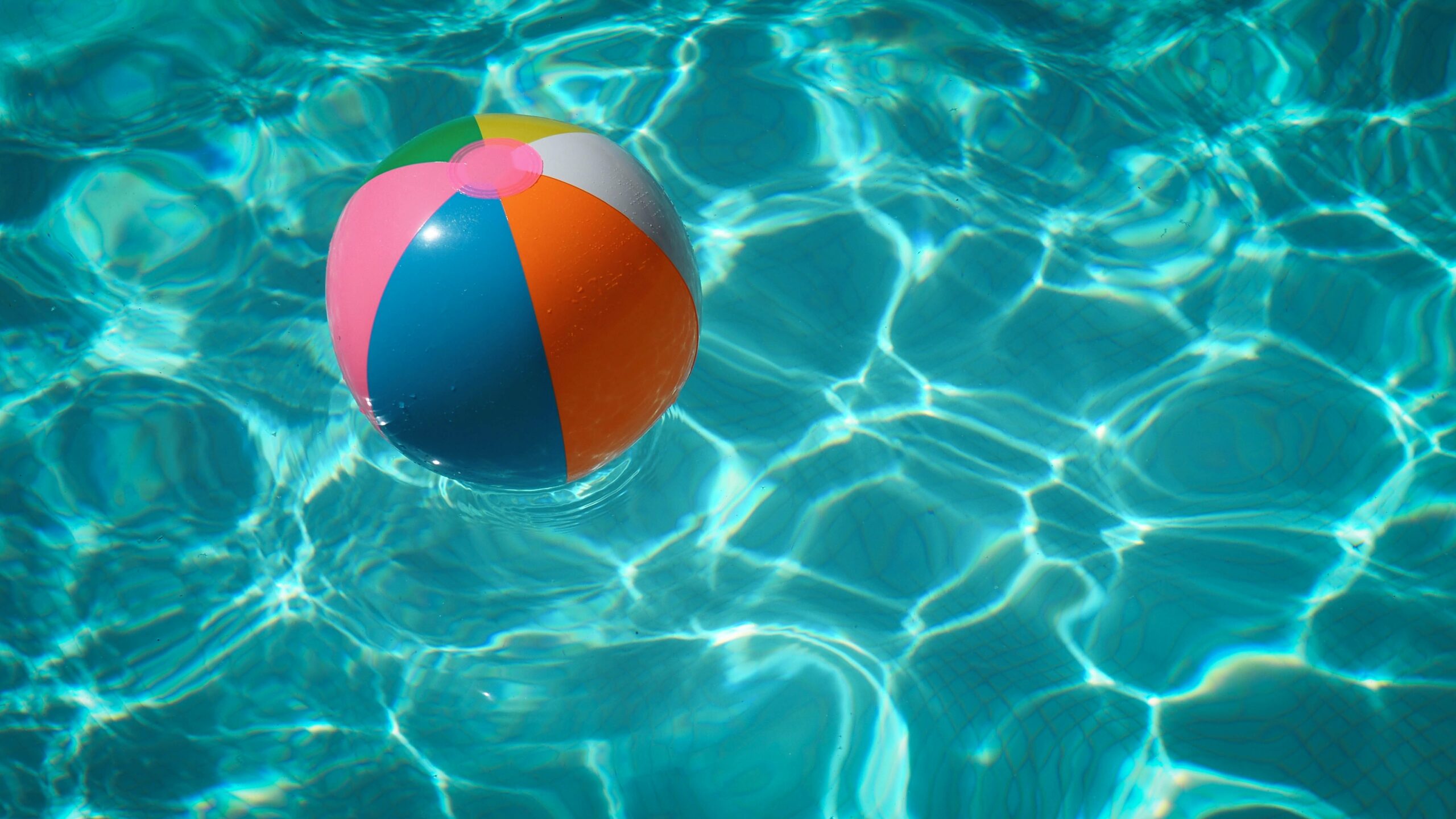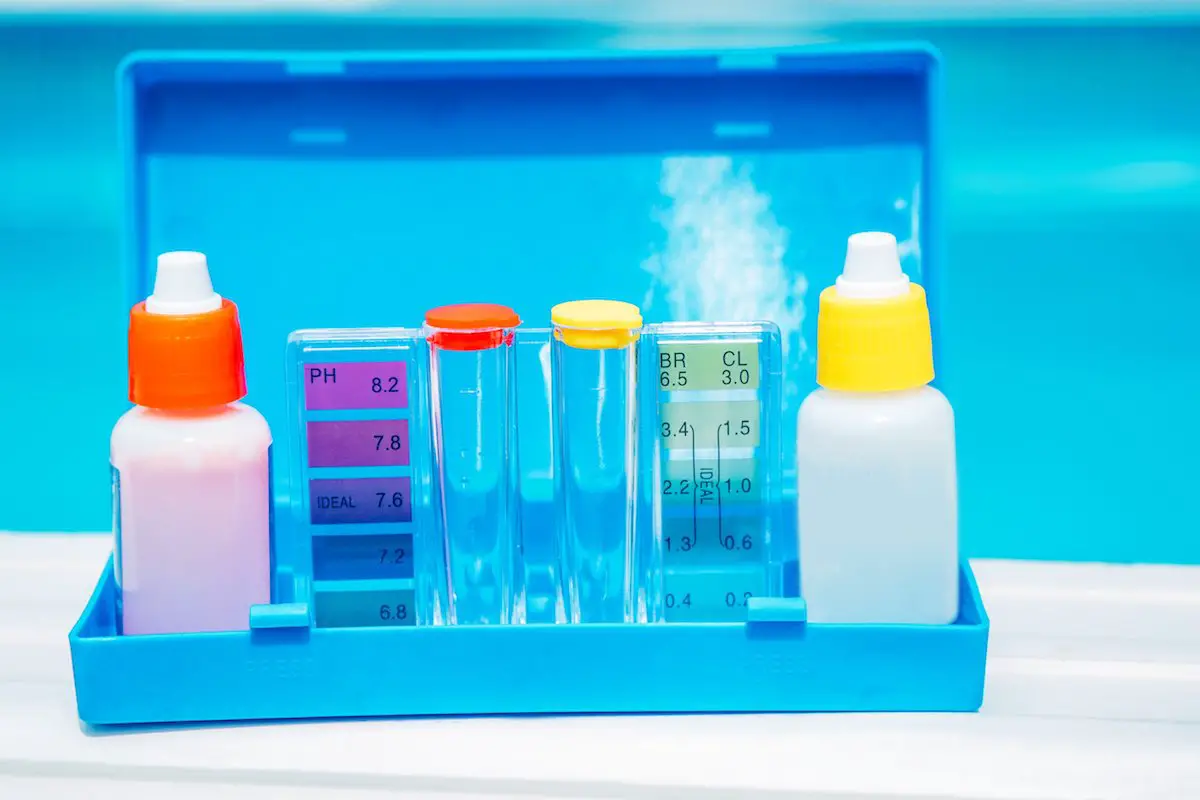Tips for Heating Your Pool Faster
The faster the water in your pool is warm enough to swim in, the longer you can enjoy it. Most homeowners that have a pool in their backyard want to use it as much as possible, so finding ways to heat the water quickly is important. Luckily, there are several different ways to heat your pool – some economic and some a little more costly. If you’d like to find out what methods you can try, keep reading.
How can I heat my pool faster? Heating a swimming pool to comfortable temperatures, ideally, 78 to 82 degrees Fahrenheit, can take time and be expensive. However, using some of the following methods can help you heat your pool faster so you can extend your swimming seasons – some of them aren’t even that costly!
- Gas Heaters
- Solar Coverings
- Dark Interior Lining and Flooring
- Floor Return Lines
- Pool Location
If you try some of these methods as the next pool season nears, you will see a big difference and will soon become the swimming hotspot of the neighborhood.

Gas Heaters for Heating Your Pool
Starting on the more expensive side of things, gas heaters are not quite as efficient as other heaters, but they do heat the pool quickly. Gas heaters work best when air temperatures are below 50 degrees Fahrenheit – which means if you’re throwing an impromptu pool party in October, a gas heater is your best bet.
Though you won’t want to use the gas heater as your main source, it is never a bad idea to have it installed. On colder days and evenings, the gas heater can work as a source of extra power on top of your more efficient heater.
Depending on the size of your pool, gas heaters are less expensive to install but more expensive to run. On average, installation costs between $1,500 and $1,600, and running the heater costs about $300 to $500 per month. The good news is, you likely won’t be operating the gas heater very often or for very long – and it helps you out when you’re in a pinch for time.
![]()
Solar Coverings for Heating Your Pool
The main way a swimming pool loses heat is through evaporation. Pool covers, no matter the quality, will help reduce the amount of evaporation and help keep in the warmth. Not only do they help retain heat, but they also keep the pool clean and free of leaves and debris.
Solar coverings are some of the best pool covers and come in many different price ranges and styles. A solar covering will not only cover the pool but also uses solar energy to help raise the temperature of the water. It is the most energy-efficient and cost-effective way to heat your pool.
For the solar cover to work, it must be on the surface of the pool as much as possible between swims. Though they can be tricky to put on, depending on the type you get, you will see a difference in the consistent water temperature.
On average, solar pool coverings cost about $75 on the lower end and $225 on the higher end. All depending on the size of the pool and the quality of the material, you can easily find one that works best for you. You can even choose an automatic cover that works at the push of a button – though it is on the pricier end of things.
Dark Interior Lining and Pool Flooring
Choosing the design elements of your pool isn’t always the easiest task, but if you have the opportunity to change things – go with a dark interior! Dark lining attracts and absorbs more heat than lighter lining does.
On sunny days, the dark lining of the pool will absorb heat from the sun’s rays, heating the water’s surface and making it easier to heat with a pump. You won’t be able to rely only on the color of your pool’s flooring, but having the darker color makes heating the pool a faster process.
An added bonus to using dark lining/flooring, the water looks more natural. Design styles can make a big difference in both the look of your pool, as well as the functionality.
Floor Return Lines
Pool filtration systems run the water through a filter before funneling it through the return lines that take it back to the top of the pool. This water is often heated or chemically treated as it runs through the filter. But, because heat rises, the water that is being returned to the surface has already been heated, leaving the rest of the water at a cooler temperature.
Installing a filtration system with return lines that deliver water to the floor of the pool creates a much faster and efficient process for heating. As the water on the bottom of the pool rises, it increases the temperature of the water, effectively heating it much faster. Having jets and a waterfall also helps with the movement of water, making sure that the warmer water gets circulated more evenly.
Pool Location
If you do not yet have a pool in your backyard, it’s good that you’re doing your research now. Deciding on the placement of the pool is an important step in determining how long you can make your swimming season last and how much it might cost to heat the pool.
There’s always a delicate balance between providing enough shade to be comfortable, but also enough sun to help heat the pool. When looking for the right spot, be sure to take into consideration the shade from the house and trees – it can be the difference of about 3 degrees in water temperature.
Instead of placing the pool where it gets little sun, place it in the best place for sunlight to reach and then install shades over the side of the pool. These shades can be temporary coverings for the pool or permanent spots that protect those who aren’t swimming. Having a little more sun for heating purposes is always good for the wallet. Additionally, added shades such as these will boost the value of your home when it comes time to sell!
Making the Swimming Season Last
Depending on where you live, you may have a longer swim season than others already, but finding the right heating method can help anyone extend the use of their pool. Pools are expensive so you want to make sure you’re getting the proper use out of them.
Each of these methods of heating your pool faster are effective on their own, however, if you use them together you will find that they work even better. Dark pool lining and a dark solar cover will attract heat and be able to retain it through cooler temperatures and wind. Gas heaters in addition to your main heat pump will have your pool warm in no time at all. Determine your budget and your needs for heating the pool quickly and you will find the perfect method for you and your family.

Related Questions
Heating an inground pool and an above-ground pool – are they the same?
Above-ground pools lose heat much faster than inground pools, meaning the above-ground pool requires a much more powerful heating mechanism to control the water temperature. Nothing changes between heating the different styles of pools apart from the size and power of the systems.
If you choose to go with an above-ground pool, adding insulation to the outside will help regulate the temperature. It may be a higher cost upfront but in the long run, it will save you money. Inground pools already have insulation from the dirt alongside the pool – helping to keep any heat from escaping at a high rate.
The cost of heating each style of pool depends on the same things: the size, location, and type of heating system. A bigger pool will require a stronger system, as well as the location and how much sun it gets. You can manipulate the cost of heating the pool by using different methods at the same time to absorb and retain heat in both in-ground and above-ground pools.
What is the heating process for hot tubs connected to pools?
For those that are looking to add a spa to their pool, it’s important to know that you do not need a separate heating system. The heating pump used for your pool can be used for the spa at the same time, or separately – it will just go through different automatic valves based on your choosing.
When heating the pool and not the spa, the spa is simply part of the pool. The water temperature is the same. When heating both, the water is set to the same temperature but you will feel a difference because of the size of the pool and the spa. When heating only the spa, the water is drawn from the spa and returns only to the spa – meaning you can cover the pool and enjoy the spa on its own.

